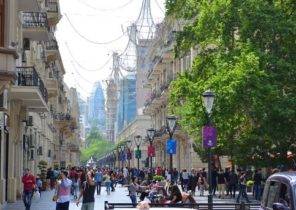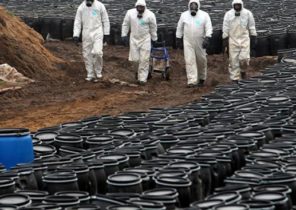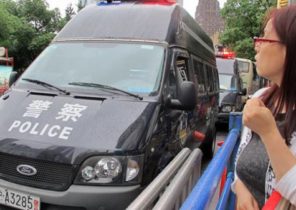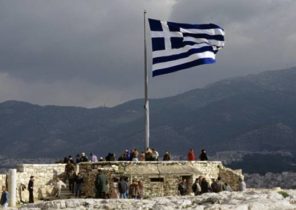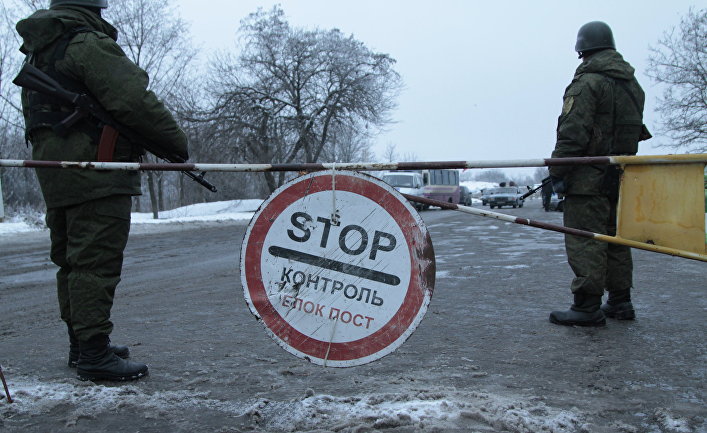
The Minsk-2 agreement, which was to find a solution to the crisis in the Donbass, was signed on 11 February 2015. They contain 13 items, of which only 3 partially implemented at the moment. We are talking about items which relate to the control for “cease-fire”, elections in the Donbas and guarantee access to humanitarian aid. As for the elections, was held only pre-delayed elections without official result.
The remaining 10 points completely failed. The cease-fire is absolutely not respected. The withdrawal of heavy weapons is not performed in the autumn of 2015. Guarantee of Amnesty was not applied, many supporters of the NPT are in prison (for example, Rafael Lusardi (Rafael Lusarghi) and TV journalist of new Russia, which protect Tatiana Montyan). Not all POWs were released. Was not recovered socio-economic relations with Ukraine. DNI and LC are completely dependent on themselves and the help of Russia to survive.
Ukraine has regained control over its borders.
The main reason for stopping the process is the reluctance of Ukraine to carry out institutional reform, which would allow to implement the Minsk-2 agreement. Such reform is only possible in a free and democratic country. Ukraine is neither one nor the other. Really a country, which for 15 years democratically-elected President was twice overthrown through revolutions organized by external agents can not be considered democratic.
Ukraine is no longer a politically free country since the constitutional reform, it is blocked by armed groups such as Right sector and Svoboda. This was well illustrated in July 2015 during the voting in the first reading the law on decentralization of Ukraine, which is a must to resolve the crisis. During the ensuing demonstrations in the explosion of a grenade thrown by a volunteer Battalion Sich, a member of the Freedom party was killed by soldiers of the national guard. A total of 3 people were killed and 140 were injured.
The vote was constantly postponed, and the law has not been adopted at the parliamentary session on 2 February 2016. To date the vote is delayed indefinitely. The implementation of the Minsk agreements is faced with various obstacles on different levels: local, national and international.
As mentioned above, the breach of contract occurs due to the blocking of the law on decentralization of the Ukrainian nationalists. They have a double interest in maintaining hostilities in the East of the country. The first reason is ideological — they are not willing to capitulate and compromise with Russia. The second is much more down to earth — this conflict brings them money and weapons.
Money is produced by two immoral and illegal ways — racketeering and smuggling. One of the first sources of income was the taxation of goods crossing the boundary line. The tax was officially established and the DNI is 2.5%. From Ukraine, this figure may vary depending on the greed of the national guard and customs. Thus, the revenue can range from 15 euros for a box of fruit up to 15 thousand for a truck or 450 Euro per ton of chicken. It’s easy to imagine what enormous amount of work, while the Ukrainian government did not pacify the takers.
Smuggling is an unlimited source of income for Ukrainian units stationed on the front line. With her strongly fighting, units of the ATO charged with the supply of Donbass and allow it to continue. The number of departments involved in the illicit trade consists of the battalion Aidar, Donbass, and many others. We are talking about food trade (meat, dairy products and soft drinks) and goods prohibited by the Ukrainian decree 415 (alcohol, cigarettes, tobacco), as well as medication and narcotic substances.
The main way of smuggling in the LC is through Kramatorsk, Artemovsk, Lugansk. According to Rodion Shovkoshytny, who spent 11 months in the Department of struggle against illegal trade, a think tank in the chain is of the SBU in Kramatorsk.
For DNR links are new Lugansk and Gorlovka and the adjacent settlements of the Russian Federation Novgorod.
Novgorod is in the buffer zone between the front lines. The village, which is not controlled either by one of the belligerents, has become a giant warehouse. 23 December 2016 in violation of the Minsk-2 agreements, the Ukrainian army has invaded the village. It is possible that the suppression of the illicit trade was part of this maneuver.
According to the Ukrainian journalist Alexey Bobrovnikov, a lot of victims on the front line could become victims not of the rebels, and the Ukrainian soldiers involved in the smuggling.
The goods also can be carried in the additional wagons attached to the train convoys crossing the front line in Konstantinovka. These compounds ghosts are most often associated with sales of coal to the Ukrainian government and less to the steel plant, owned by Rinat Akhmetov (by-product coke plant in Avdeevka). So in October 2016, dozens of trains have crossed the lines. Although the sale of coal by rail is not part of the smuggling, however, necessary to say a few words about it to clarify the situation.
Supply of anthracite is carried out through the company D. TEK, also owned by Rinat Akhmetov. In the second half of 2016 monthly deliveries amounted to 600 thousand tons, while in winter it reached 750 thousand tons. Selling corner in Ukraine, known to everyone in the Donbass. Officially, it is used to Finance the pension system. However, according to other sources, these supplies are funded directly by Russia in the framework of its humanitarian programme (729 thousand pensions in the amount of 2.4 billion rubles). Thus, considering that the current price of anthracite is $ 40 per ton, and that only 25% of mines of Donbass were profitable prior to the conflict, it is not possible to take benefits from a sale of coal. Besides, most part of the sold coal received from the mines nationalized DNR.
In the paragraph concerning official coal market, mentioned a very high probability that Russia is financing the pension system in the Donbas. And this funding has been extended further. According to the Pro-NATO newspaper Das Bild, more than 70% of pensions of the self-proclaimed republics financed by Russia. The article gives the amount of 79 million euros a month.
Kiev and its Western accomplices see it as funding a full Russian control over the Donbas. But in reality, the DNI and LC are fairly self-contained structures that the West does not want to admit it.
For them, the implementation of the Minsk agreements-2, requested by Russia, is seen as a betrayal. If agreements are made, the Republic will once again become simple Autonomous regions of Ukraine.
The tension between Russia and DNR can be illustrated by two examples. Case Purgina phobia FSB demonstrated in the case of two former journalists of the Agency, Downey.
Andrei Purgin — Ukrainian activist and English-speaking supporter of independence. Since 2005 he is the founder of the project of the Donetsk Republic, which he believes is the successor of the Donetsk-Krivoy Rog Soviet Republic. His public career began with organizations to protest against the Orange revolution. In February 2005, have organized a tent city in Donetsk, where he advocated the status of the Russian language and the federalization of Ukraine. He was one of the leaders of independence in the spring of 2014 and the first Deputy Prime Minister from may to September 2015. When crossing the border with Russia, he was arrested at the border crossing and 4 days spent in prison of the MGB (Ministry of State security of DND). In the end, was forced to resign.
It could be caused by his protest against the Minsk agreements and the intention to organize a referendum on joining Russia.
But if purging is not the only one. Summer 2014 has passed in an atmosphere of extensive restructuring of the political class of Donetsk. Many politicians and military (for example, Gubarev and Igor Strelkov), whose views are considered secessionist, was suspended from duty.
In contrast to claims in the West the first example shows that Russia has put pressure on the DNR to ensure the implementation of the Minsk agreements. It would be great if Angela Merkel and Francois Hollande did the same thing against Petro Poroshenko.
The second example, despite all the anecdotal, more significantly, with regard to the duality relations between Russia and the DNI. This story surfaced in the published emails after hacking MGB. In the letters it was about the misadventures of two former journalists of the Agency Downey, David Simpson and Laurent Para.
David Simpson, a former CIA agent, expert on the Russian military industry, arrived in Donetsk in December 2015 and in January joined the ranks of Dhoni, then a private commercial structure. But very quickly in February against him began to appear some suspicion. The MGB was informed. He was accused of contacts with the Novel by Mancini, the Russian journalist who was interested in Donny. 6 may 2015 Simpson was fired from the Agency in frequent contact with the journalist, who was considered an agent of the FSB! From this we can conclude that during the Dhoni FSB was more afraid of the CIA?
Another former journalist from Dhoni Laurent Briar was questioned by four officers of FSB on February 17, 2015 at the crossing of the Russian border with the DNI. He complains of this in a letter to the MGB and not to talk about the real reason for his detention and interrogation he easily brings three journalists from the news Agency “Russia today” and three from “Sputnik” for their anti-Putin views.
If indeed, as Western media say, the DNI submits to Russia, why so much distrust of the FSB? Maybe it’s more related to actions that are contrary to the national security of Russia?
These two examples show how in the West mistakenly believe that the implementation of the Minsk agreements-2 depends only on the goodwill of Russia. Despite the fact that the DNI and LC depend on economic help from Moscow, however, they are two independent republics. What to do? Stop doing work for the powerless in Ukraine and leave 3 million people without food, heating, social protection and education?
In the following article about the barriers of implementation of the Minsk agreements at the national level we will talk about political and economic reasons that push Kiev to leave the impasse situation in the East of the country. And the consequences for Russia’s domestic policy. That will allow you to ask the question: who are these Russian citizens, who continue to be involved in the Ukrainian crisis?
